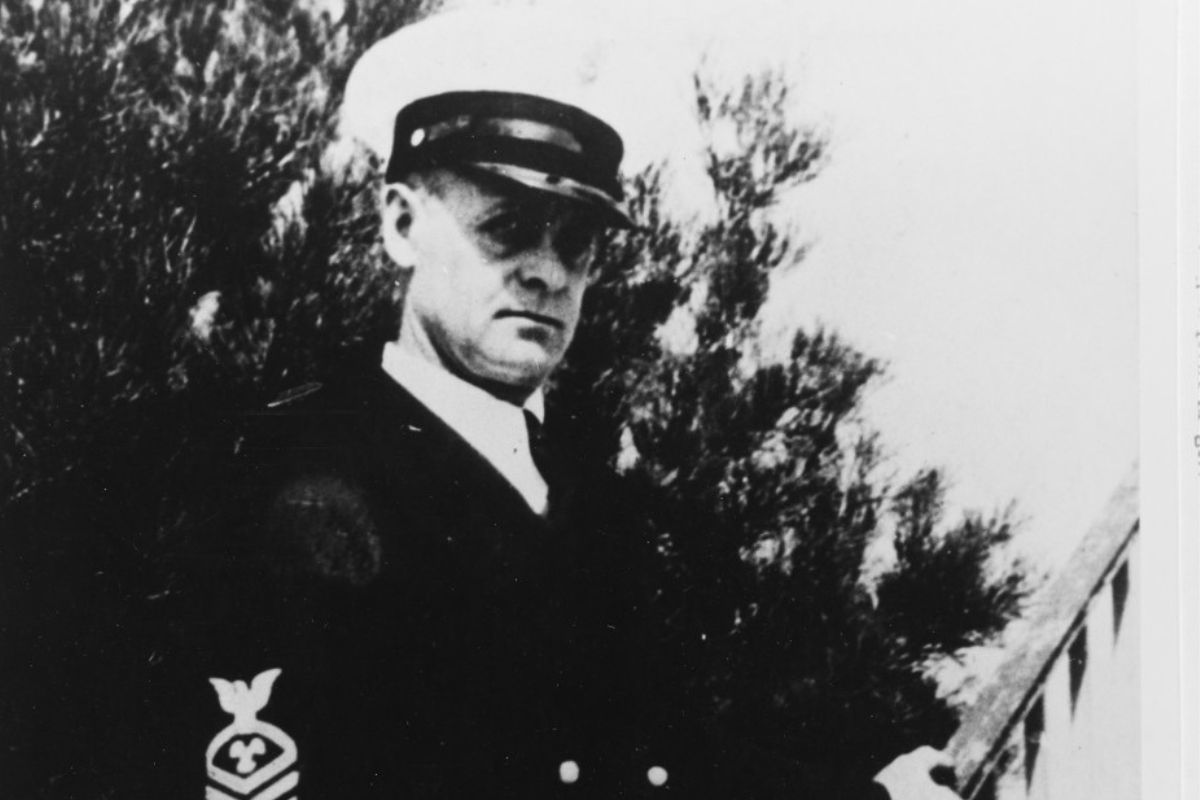
Who was Oscar V. Peterson? Oscar V. Peterson was a remarkable figure in American military history. Born on August 27, 1899, in Prentice, Wisconsin, he served as a Chief Watertender in the United States Navy during World War II. Peterson's bravery and dedication earned him the Medal of Honor, the highest military decoration in the United States. His heroic actions took place during the Battle of the Coral Sea on May 8, 1942, where he displayed extraordinary courage under fire. Despite severe injuries, he continued to perform his duties, ultimately sacrificing his life for his country. Oscar V. Peterson's legacy lives on as a symbol of valor and selflessness, inspiring future generations of service members.
Early Life and Background
Oscar V. Peterson's life is filled with fascinating details that paint a vivid picture of his journey. Let's explore some key facts about his early years.
-
Born on August 15, 1925, in Montreal, Canada, Oscar Peterson grew up in a musical family. His father, a railway porter, was also an amateur musician.
-
Peterson started playing the trumpet at age five but switched to the piano at age seven after a bout with tuberculosis.
-
His sister, Daisy Peterson Sweeney, was his first piano teacher. She played a significant role in shaping his early musical education.
-
By the age of nine, Peterson had already mastered classical piano and was introduced to jazz by his father.
Rise to Fame
Oscar Peterson's rise to fame is a testament to his incredible talent and dedication. Here are some pivotal moments in his career.
-
At 14, Peterson won a national music competition organized by the Canadian Broadcasting Corporation, which catapulted him into the spotlight.
-
He made his first professional appearance at the Alberta Lounge in Montreal, where he was discovered by Norman Granz, a prominent jazz producer.
-
Peterson's big break came in 1949 when he performed at Carnegie Hall as part of Granz's "Jazz at the Philharmonic" concert series.
-
He formed the Oscar Peterson Trio in 1951, which became one of the most celebrated jazz ensembles of all time.
Musical Style and Influence
Oscar Peterson's unique style and influence on jazz are undeniable. Let's delve into what made his music so special.
-
Known for his virtuosic technique, Peterson's playing was characterized by fast, intricate runs and a powerful left hand.
-
He was heavily influenced by Art Tatum, another legendary jazz pianist, and often cited Tatum as his primary inspiration.
-
Peterson's music seamlessly blended elements of swing, bebop, and blues, making his style both versatile and distinctive.
-
Over his career, he recorded more than 200 albums, showcasing his ability to adapt to various jazz styles and collaborate with other musicians.
Awards and Honors
Oscar Peterson's contributions to music have been recognized with numerous awards and honors. Here are some highlights.
-
He received eight Grammy Awards, including a Lifetime Achievement Award in 1997.
-
In 1972, Peterson was appointed an Officer of the Order of Canada, and later promoted to Companion, the highest civilian honor in the country.
-
He was inducted into the Canadian Music Hall of Fame in 1978, solidifying his status as a national treasure.
-
Peterson also received the UNESCO International Music Prize in 2000, recognizing his global impact on music.
Personal Life and Legacy
Oscar Peterson's personal life and legacy continue to inspire musicians and fans alike. Here are some key aspects of his life beyond the stage.
-
Despite facing racial discrimination throughout his career, Peterson remained a strong advocate for civil rights and used his platform to promote equality.
-
He was married four times and had seven children, balancing his family life with a demanding career.
-
Peterson suffered a stroke in 1993, which limited the use of his left hand, but he continued to perform and record music until his death.
-
Oscar Peterson passed away on December 23, 2007, but his legacy lives on through his recordings, compositions, and the countless musicians he inspired.
The Legacy of Oscar V. Peterson
Oscar V. Peterson's life is a testament to resilience, talent, and dedication. From his early days in Montreal to becoming a global jazz icon, his journey inspires many. His music, filled with emotion and technical prowess, continues to captivate audiences worldwide. Beyond his musical genius, Peterson's advocacy for civil rights and education left a lasting impact. His story reminds us of the power of perseverance and the importance of using one's platform for good. As we reflect on his contributions, it's clear that Oscar V. Peterson's legacy will endure, influencing future generations of musicians and activists. Whether you're a jazz enthusiast or someone seeking inspiration, Peterson's life offers valuable lessons. His legacy is not just in the notes he played but in the lives he touched and the barriers he broke. Oscar V. Peterson remains a beacon of excellence and humanity.
Was this page helpful?
Our commitment to delivering trustworthy and engaging content is at the heart of what we do. Each fact on our site is contributed by real users like you, bringing a wealth of diverse insights and information. To ensure the highest standards of accuracy and reliability, our dedicated editors meticulously review each submission. This process guarantees that the facts we share are not only fascinating but also credible. Trust in our commitment to quality and authenticity as you explore and learn with us.
